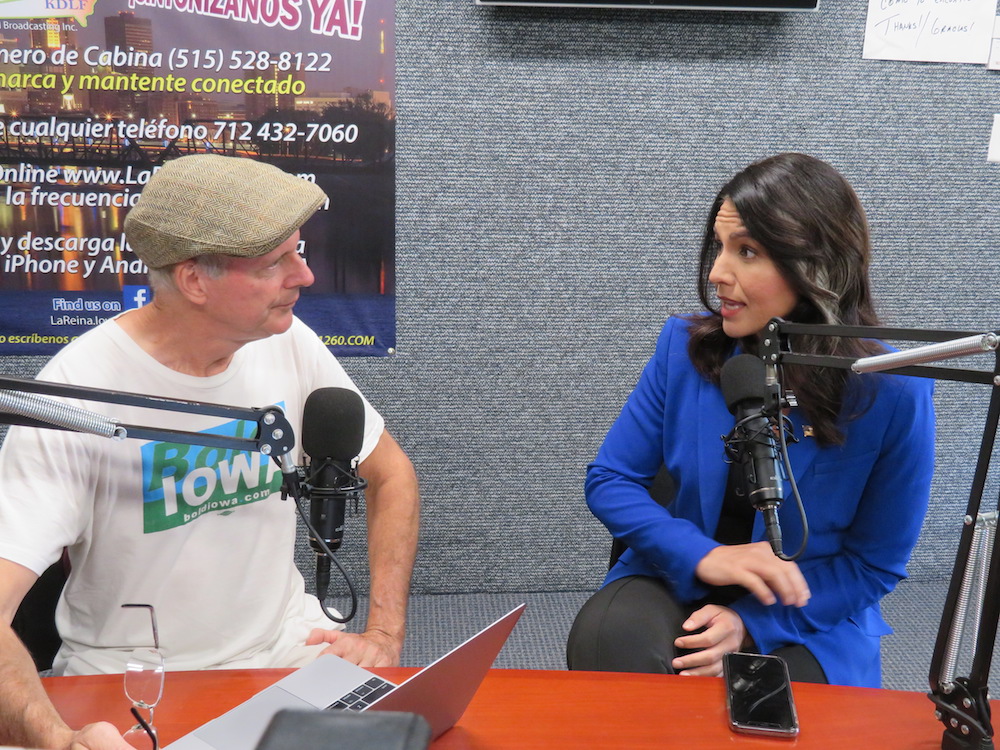This was a collaboration in 2021 between The Fallon Forum and Bold Iowa. Each week from January through April, Ed hosted an hour-long conversation with an Iowan who voted for Donald Trump. A summary of those conversations were published in Ed’s weekly blog and the interviews featured on the Fallon Forum podcast and radio program.
The goals with these conversations were to:
1. Dispel the myth that all Trump voters are bad people;
2. Identify common ground;
3. Dialogue about solutions to the existential threat of climate change;
4. Understand why so few rural and blue-collar Iowans vote Democrat.
Ed writes, “I reject the rhetoric that most Trump voters are racists, misogynists, and ‘deplorable’ — as Hillary Clinton so memorably referred to half of Trump’s supporters in 2016. There are good people who, for various reasons, voted for Donald Trump. We need to understand why. We need to listen. We need to figure out our shared interests, especially regarding the climate emergency.”
Here’s what Ed says he learned from the interviews:
1. Most Trump voters are not racist, misogynist, or stupid. Many I spoke with were critical of Trump’s more divisive statements. One voter creatively said he wished Trump didn’t have thumbs — a reference to the former President’s propensity to binge-tweet late-night crazy talk.
2. Consistent with my experience talking with voters across the political spectrum, my Trump voter friends were grateful for the opportunity to be heard. The message here for urban politicians hoping to find support in rural and blue-collar communities: show up, listen, don’t lecture, be nice.
3. There isn’t a neat and tidy partisan box you can plunk all Trump voters into. Iowans’ reasons for supporting him are surprisingly diverse.

Tulsi Gabbard on The Fallon Forum, September, 2019.
4. When I asked if there were any Democrats running for president in 2020 they liked, nearly every Trump voter said they would have considered supporting Tulsi Gabbard. That says volumes: a progressive-populist Democrat who supported Bernie Sanders for president in 2016 appeals to nearly all thirteen Trump voters I spoke with.
5. A big disappointment for me was that only a few Trump voters agree with the accepted science on climate change. The fossil-fuel-funded denier industry has proven very successful in its campaign to discredit the climate emergency.
6. No particular media outlets — not even Fox — were mentioned consistently as news sources. Trump voters get their news from a surprisingly broad array of sources.
7. I was disappointed that fact-check services aren’t taken more seriously. Some voters even dismissed them as politically biased, and thus unreliable. That hasn’t been the case in my experience, and with so much misinformation out there, fact-check services are more important than ever.
8. It’s become clearer to me that underlying America’s growing political divide is the disintegration of what used to be called “the free press.” For starters, three changes are needed: (1) break up media monopolies, (2) restore the Fairness Doctrine, and (3) repeal the Telecommunications Act signed by Bill Clinton in 1996.
9. Perhaps the most important takeaway is this: every single Trump voter I interviewed is a good person.
10. Finally, in terms of identifying common ground, I asked if they agreed or disagreed with the following statements — all positions I support:
- The amount of money spent on political campaigns is obscene.
- The average person pays too much in taxes.
- Anti-trust laws intended to prevent monopolies are weak or non-existent.
- The federal government has grown too big and intrusive.
- More power needs to stay with local governments.
- The corporate-owned mainstream media’s focus is to preserve the status quo.
- Supporting local business is better than spending money at chains or Amazon.
- It’s best to buy food from local and/or organic sources.
- The First Amendment and our freedom of speech is being eroded.
- Individuals and government must do more to address climate change.
My Trump voter friends and I agree on most of these points. Sure, I didn’t ask about key issues like health care, education, and the environment, and I avoided hot-button issues like guns, abortion, and transgender rights. But to say that Trump and Biden voters live in completely different universes, as partisans contend, is simply not the case.
Here are links to Ed’s blogs and podcast featuring each Iowa Trump voter:
April 2, 2021: Pat Bertroche, retired psychiatrist
March 24, 2021: Justin Brady, communications professional
March 16, 2021: Dave Murillo, retired police sergeant
March 11, 2021: Dave Funk, retired Northwest Airlines captain
March 8, 2021: Nancy Suby-Bohn, Des Moines neighborhood activist
February 23, 2021: Joel Kurtinitis, columnist
February 16, 2021: Steve Sukup, former Republican lawmaker
February 10, 2021: Weslie Phipps, farmer
February 4, 2021: Nik Refsland, National Guard recruiter
January 27, 2021: Janet Clark, author
January 21, 2021: Joel Brown, former Democratic lawmaker
January 13, 2021: Steve Hickenbottom, organic farmer
January 6, 2021: Kim Houlding, veterinarian
